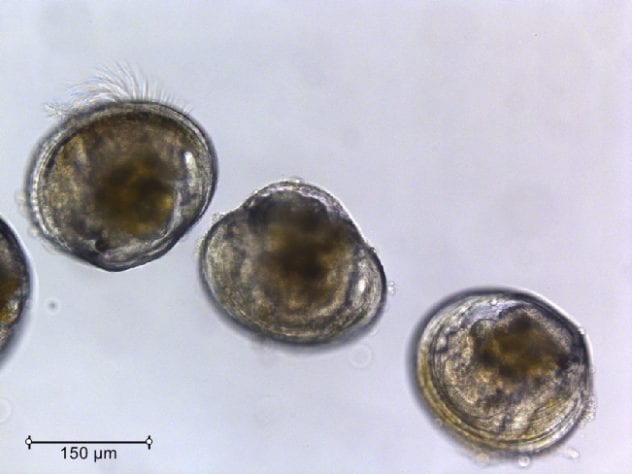WILL OCEAN ACIDIFICATION CAUSE ‘LAZY LARVAE’? EFFECTS OF CLIMATE STRESSORS ON LARVAL BEHAVIOR AND DISPERSAL
“The hatcheries call it ‘lazy larvae syndrome’ because these tiny oysters just sink in the water and stop swimming” As the quotation and videos on the right side of the page illustrate, a change in larval swimming, or ‘lazy larvae syndrome,’ is an anecdotally well-known effect of ocean acidification. Climate predictions for the year 2100 include increased ocean temperatures (up to 2°C in the upper 100 m) and a decrease in the ocean’s pH by as much as 0.4 units. In coastal systems near urban centers, global acidification from anthropogenic climate change will amplify with regional acidification processes caused by upwelling and eutrophication. In this research we focus primarily on the combined effects of ocean warming and acidification and use ecologically and economically important bivalve species as model systems to address three main questions: – Quotation by Dr. George Waldbusser in reference to oyster larvae subject to corrosive conditions. NSF Press Release 14-172, December 2014

Watch Olympia oyster larvae swimming in present day seawater conditions below: Watch Olympia oyster larvae swimming in future (2100) seawater conditions below: